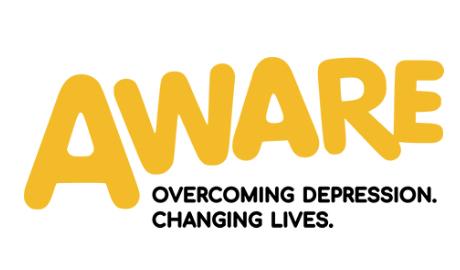Understanding Stress & How to Manage It
Mental HealthWe all know what it’s like to feel stressed, but what actually is stress?
Stress is essentially the way your body responds under pressure. This is sometimes called the 'fight-or-flight response'. It's your body's way of telling you to react to something perceived as a threat. When you experience stress, your body releases hormones and chemicals such as adrenaline and cortisol to give you a rush of energy and prepare you for physical action.
Stress isn't inherently bad. It can help you react against something that might be dangerous and keep you safe. You can even have good stress, like when you go on a rollercoaster, when you exercise, or when you watch a scary film.
However, if your stress is prolonged, or when you experience stress when there is no threat, it can damage your health. Too much stress can leave you in a permanent state of fight or flight, leaving you overwhelmed or unable to cope. Long term stress has been linked to depression, anxiety, and other mood disorders.
How do we experience stress?
Everyone reacts to stress differently, and it can affect us in a variety of ways. Here are the most common symptoms that some people experience:
- Feelings: Irritable, anxious, angry, sad, frustrated, afraid, overwhelmed, agitated.
- Physical symptoms: Headaches or dizziness, aches and pains, nausea, sweating, stomach problems, chest pain or faster heartbeat, sexual problems.
- Mental symptoms: Difficulty concentrating, struggling to make decisions, constantly worrying, being forgetful, lack of productivity.
- Behavioural changes: Disturbances in your sleep habits, fluctuations in your eating habits, being tearful, avoiding certain places or people, drinking or smoking more.
Some people can be more affected by stress than others. Factors such as how you perceive the situation, your emotional resilience, external pressures and your support systems can affect how you feel stress in different situations. Identifying how you respond to stress is the first step in learning how to manage it.
How can we manage stress?
Identifying your triggers and symptoms
Identifying when you feel stressed, the causes of stress, and how you think is key to managing stress. By understanding how stress affects you helps you to understand what you can do to manage it. Take some time to reflect on what might be causing you stress. You might be surprised at how much you are coping with at once!
Time-management
If you find it difficult to concentrate and achieve your tasks, adjusting how you organise your time can help you feel more in control of your day and help you handle pressure. Activities like writing to-do lists, breaking down tasks into small achievable goals, balancing your jobs and taking breaks can help you feel less stressed. It is important not to undertake too much at once as this can put you under pressure and make it hard to do individual tasks well.
Managing external pressures
Although there are many things that we cannot control, there may be some practical ways to fix or improve some of the issues that are causing you stress. If you say 'yes' to everything and take on too many things at once, you may need to prioritise your workload. Maybe you need to set better boundaries between your life and your work/school so that you can ''switch off'' from work. Whatever the situation may be, it is always good to explore possible options that can help relieve you of some pressure.
Take steps to look after your mental wellbeing
You can make changes in your lifestyle that can equip you to deal with pressure and stressful situations and develop emotional resilience against life's challenges.
These can include:
- Using relaxation techniques such as breathing exercises, practising mindfulness, listening to music or any other activity that you know helps you relax! Make sure to set aside time in your day to relax. This can even help you feel more energised for your day.
- Develop your interests and hobbies. Finding an activity that you find fun and engaging is a great way to get away from everyday pressures, and shared hobbies can be an excellent way to meet other people too!
- Making time for your friends can help you feel more positive and less isolated. Talking to friends can help you keep things in perspective and can generally make you feel happier. Having supportive relationships around you can help you realise that you are not alone and help you manage stress.
Looking after your physical health
Looking after your physical health can help you manage your mental health and help manage stress too. Several ways you can do this include:
- Having a good sleep routine
- Being more physically active and incorporating exercise in your everyday life
- Eating a healthy, balanced diet
- Limiting your use of alcohol and drugs (sometimes these can make stress worse!)
Taking care of yourself
It is essential to be kind to yourself and recognise when you need to take a break. Small ways you can help you be kinder to yourself include:
- Rewarding yourself for your achievements
- Getting a change of scenery
- Taking a break or holiday
- Forgiving yourself when you make a mistake, or you don't achieve something you hoped for
Talk
Sometimes talking about how you’re feeling to your family and friends can make a big difference. They can provide a listening ear and also help you out in other ways. If your stress is affecting your work/school, you may be able to reach out to other support services that can help you out. If you feel you need professional support, you can speak to your GP. They can help you seek professional treatment and check your overall health. Peer support can help you feel less alone, and sharing your experiences with people that know what you’re going through can be helpful.
















































































